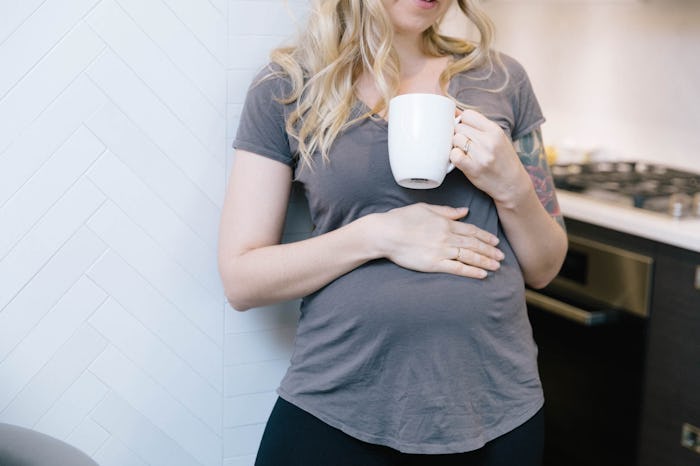It's hard to maintain a healthy lifestyle no matter what, but when you're pregnant, it's a whole new ballgame. You are not only responsible for your health, but also the health of the tiny human growing inside you. The first trimester is when you start paying attention to, and acting on, the rules and guidelines for a healthy pregnancy. If you just found out you are pregnant, and are wondering what you should or shouldn't be doing, you may ask, what precautions do I need to take in the first trimester?
As soon as you find out you are pregnant, it's a good idea to schedule time to see your OB-GYN. Your doctor will be able to properly date your pregnancy, conduct an ultrasound to see the baby, and can evaluate any medications or lifestyle changes you need to make. Your first prenatal visits can get the ball rolling on a healthy and safe pregnancy.
Along with visiting your doctor, one of the most important things you should do when you find out you are pregnant is to quit smoking, drinking, and doing any kind of drugs. According to the University of California San Francisco, tobacco, alcohol, and drugs can cross the placenta via the umbilical cord into the baby's bloodstream, increasing the risk of miscarriage, stillbirth, and fetal alcohol syndrome. If you are taking any kind of drugs, even if they are prescribed, you should call your doctor as soon as possible to figure out their safety and impact on your pregnancy.
It's bad news if you're an espresso addict, but another precaution to take during pregnancy is to cut back on caffeine, according to the American Pregnancy Association (APA). Apparently it can increase your blood pressure and heart rate, cross through to the baby (who will be unable to metabolize it), and it can increase your chances of miscarriage. The APA suggested limiting your caffeine intake to 150 milligrams to 300 milligrams a day.
As hard as they may be to maintain, proper nutrition and exercise are essential to a healthy pregnancy. The American Academy of Pediatrics Healthy Children website suggested moms take prenatal vitamins — which help in reducing the risk of birth defects — eat a diet of balanced, nutritious meals with an added 300 calories per day for your growing baby, and keep a moderate, slow paced, low-impact exercise routine.
Talking to your doctor to figure out what's best for you and your pregnancy is important, and following these precautionary measures will ensure you and your baby are as healthy and happy as possible.
